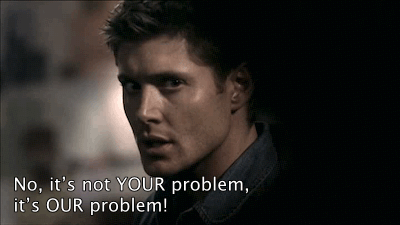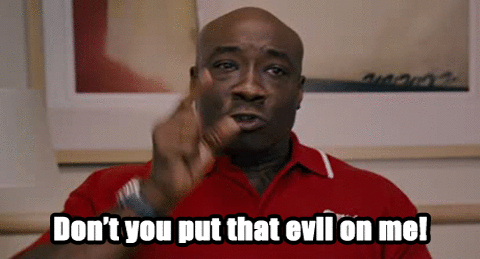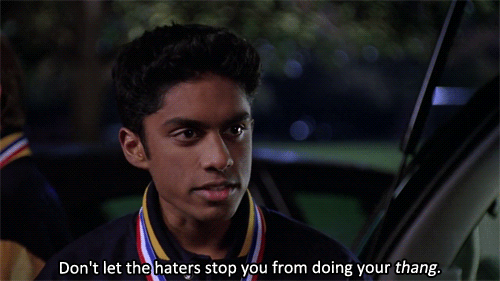Your team is talking about a tough slog of a project that hasn’t been going well. Milestones have slipped. Deliverables haven’t been delivered. Rather than determining how you can move forward together, your team is fixated on finding someone to blame for what went wrong. Tempers flare as everyone points their finger at everyone else.
Sorry to say, you’re in the middle of a blamestorm.

Blamestorming is a term that’s been around for decades. Back in 1997, Gareth Branwyn of Wired Magazine defined blamestorming as: “To sit around and discuss why a deadline was missed or a project failed and who’s responsible. Like brainstorming, from which it is derived, blamestorming is done with little regard for the quality of contributions to the discussion.”
People have a tendency to believe that if something’s gone wrong, someone must be to blame. When blamestorming, people try to find a single scapegoat to bear the responsibility when, chances are, a whole lot of people and factors contributed to the outcome. Blamestorming is a distraction from learning from mistakes and dealing with the real issues.
One common type of blamestorming is the outcry for the resignation of government leaders. A more lighthearted example of blamestorming is the “Thanks Obama” meme, where everyday problems are sarcastically blamed on the administration.


https://vine.co/v/OPq02dpidBM
We’ve all experienced this unnecessary, unproductive type of conflict. How can leaders help their team move beyond blamestorming toward more effective communications and collaboration?
Shift the focus to working together for the greater good

People on your team may not be aware that they’re blamestorming or that unjustly placing blame on an individual is counterproductive. Your team may be blamestorming out of habit, doing it unconsciously, or continuing a toxic practice that the workplace culture previously supported.
If your team is prone to blamestorming, it’s time to set new expectations. Lead your team by establishing clear goals that everyone is responsible for. Design processes that support and reward collective ownership and shared accountability. Eliminate rewards for blamestorming.
Refocus your team on understanding problems without assigning personal blame. Create a culture of learning that prioritizes identifying solutions and accepting shared responsibility for success.
Get people off the defensive

People may place blame on someone as a way to keep others from noticing their own mistakes. Or, people might blame others to make themselves or their team look better in comparison. The outcome is people waste their energy defending themselves from blame and may even avoid taking risks that could make them vulnerable to blame. Either way, the blamestorming is the result of a culture in which people feel competitive instead of collaborative.
If you’re in a leadership role, you can counteract this by helping to break down silos in your workplace and cultivating a culture of collaboration. When blamestorming starts, identify who might be using it to shift attention away from themselves or to gain power. Talk to them about more effective ways of contributing to the team’s learning and growth.
Learn to identify and diffuse tense situations before they become full-blown blamestorms. Don’t let arguments between individuals or groups happen in front of an audience, whether they’re taking place at a team meeting or in the hallway. Stop these conversations and move the participants into a private space.
Isolate the haters

As a team leader, you’re responsible for managing your team as a whole and each of the individuals within it. If a particular individual is often the first to place blame and incite a blamestorm, it’s time for some one-on-one coaching. Talk to them about why you want your team to skip fingerpointing and how they can contribute to a more constructive conversation.
If this individual is a true hater, you may not be able to coach them in a positive direction. In that case, work with the rest of your team so they stop taking the hater’s blamestorm bait. Help your team accept that sometimes haters gonna hate, and instead talk to them about changing how they respond to anyone who tries to start a blamestorm.
Keep learning
For even more ideas, check out Blamestorming: Why Conversations Go Wrong and How to Fix Them by Rob Kendall. The author offers practical tips on how to avoid miscommunication and the conversational pitfalls that can lead to blamestorming.
And, give The Blame Game: How the Hidden Rules of Credit and Blame Determine Our Success or Failure a read. Author Ben Dattner explains how blame and credit interfere with interpersonal dynamics and organizational cultures, and how to overcome these problems.
Have you weathered a blamestorm at work? Share your experience and how you dealt with it in the comments!
Lauren Girardin is a marketing and communications consultant, writer, and trainer. Find her on Twitter at @girardinl.





Leave a Reply
You must be logged in to post a comment.